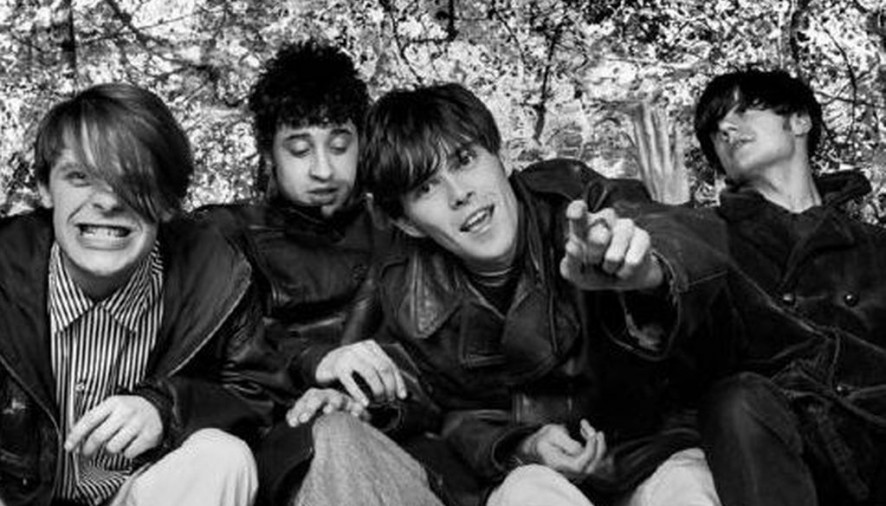From The Stone Roses to Busted to Fuzzbox, it seems like every band from eras past have announced that they are re-uniting in the past weeks causing millions of music fans to clamber onto the nostalgia bus. Are they bringing their music to a new generation or simply milking the cash cow of the modern festival circuit? Hugo Bosch and Carl White give you both sides of the argument.
A Callous Cash Grab? It Doesn’t Matter.
I have a confession. I arrived at The Stone Roses party very late, and, if I may push this metaphor further, the house had been trashed, someone’s throwing up in a toilet and there’s a dude mumbling about God in a haze of hallucinogens on the sofa. All in all, a decent party, but I missed it. Completely. Sure, I had Fools Gold kicking about on my iTunes, but it wasn’t until recently that I was truly taken in by the bands catchy bass lines and swirling guitar riffs.
However, rather than view this as a critique on my narrow and often unaccommodating music taste, I see it as testament to the enduring appeal of a band that was at the height of their fame before I was born. And it is this reunion which provides latecomers such as myself, and of course the die-hard veteran fans, the chance to express our love and admiration for the musical juggernaut that is The Stone Roses.
This is not the first time the band has reunited since their acrimonious break up in 1996 and at the time of writing they have not announced any new material, which although disappointing, is to be expected. Fans anticipate an authentic night of Stone Roses classics, not a desperate attempt from an aging band to plug their new album – which if the album is shite, it would be.
So what if the shows are a callous cash grab clawing at our collective nostalgia or new found interest? Ultimately it is irrelevant if they can deliver a faithful set-list that lives up to the bands seemingly invincible hype. You could crow from your cold-hearted throne of cynicism “Why would you want to watch some old blokes attempt to relive their youth and inevitably come up short?” but I would simply point out the shining example of recent reunions, which is of course the Rolling Stones.
Mick Jagger may now look like a burnt baked potato but he’s still got the intensity and energy to pull it off at the impressive age of 72. Ian Brown at 52 should have no problem as long as he captures and enthusiastically portrays what made the band so popular in the early 90’s.
The only aspect which leaves a bitter taste in my mouth are the relatively few gigs they are playing. Even with the time and money to go to one of their shows it is an internet lottery to be able to successfully buy a ticket.
So, my excitement may be in vain, but I bet those who do go will have a bloody good time, be it to relive their youth once more or to form new memories and make people jealous by going on about how much fun it was. People like me.
Hugo Bosch
You Don’t Want To Do A Guns ‘n’ Roses Though Do You…
I can’t help but feel like dying a little bit inside. Yes, The Stone Roses’ music is brilliant, yes, they created a Madchester sound that will last forever. But there’s nothing more they can bring to a rapidly-evolving industry.
Music is a very politically and socially-charged art form. It relies upon its era to function. The psychedelic ‘60s would not have worked had there not been a counter-cultural social revolution at the time, and Madchester of the late ‘80s and early ‘90s wouldn’t have spawned if Thatcher hadn’t shafted every working-class person north of Watford. The music of those eras are still relevant now – but because they operate on a nostalgic level, representing a time and place in human history. Forcing certain musical genres to define a generation is futile. The 2010s are going to be defined by Minaj, Kanye and Taylor and there’s bugger all you can do about it. Bringing a band or artist back from the depths of ‘70s isn’t going to help anything; if anything, it’s regressive.
Take, for instance, Guns ‘n’ Roses. An iconic band of the late ‘80s to mid-‘90s, and then it all went wrong with a reunion. Appetite for Destruction was a very well-constructed album. Immortal songs ‘Welcome to the Jungle’, ‘Sweet Child o’ Mine’ and ‘Paradise City’ are still played regularly by rock music fans and mid-teen cover bands across the world. The problem? 2008’s Chinese Democracy. It came off the back of a disastrous attempt at a comeback, with excruciatingly high production costs and multiple band member changes, and unsurprisingly it wasn’t very good. As well as that they still turned up to their own gigs two hours late and just generally pissed everyone off. They couldn’t adapt to the late noughties musically: they were trapped within their era.
Pink Floyd were a sort-of similar story. The Roger Waters songwriting that produced The Dark Side of the Moon, Wish You Were Here, Animals and The Wall defined the prog-rock genre. It didn’t translate into 2014’s The Endless River which, although selling loads of copies, had a very outdated sound that didn’t translate. Financially, it was a smart move; artistically, there are question marks.
And that pretty much sums up how I feel about The Stone Roses and their ‘comeback’. I fear it will seriously damage the artistic reputation of great band and that it’s money-driven. They represent a moment in the past and should stay there, remembered as a brilliant band, but certainly of their time.
Carl White

